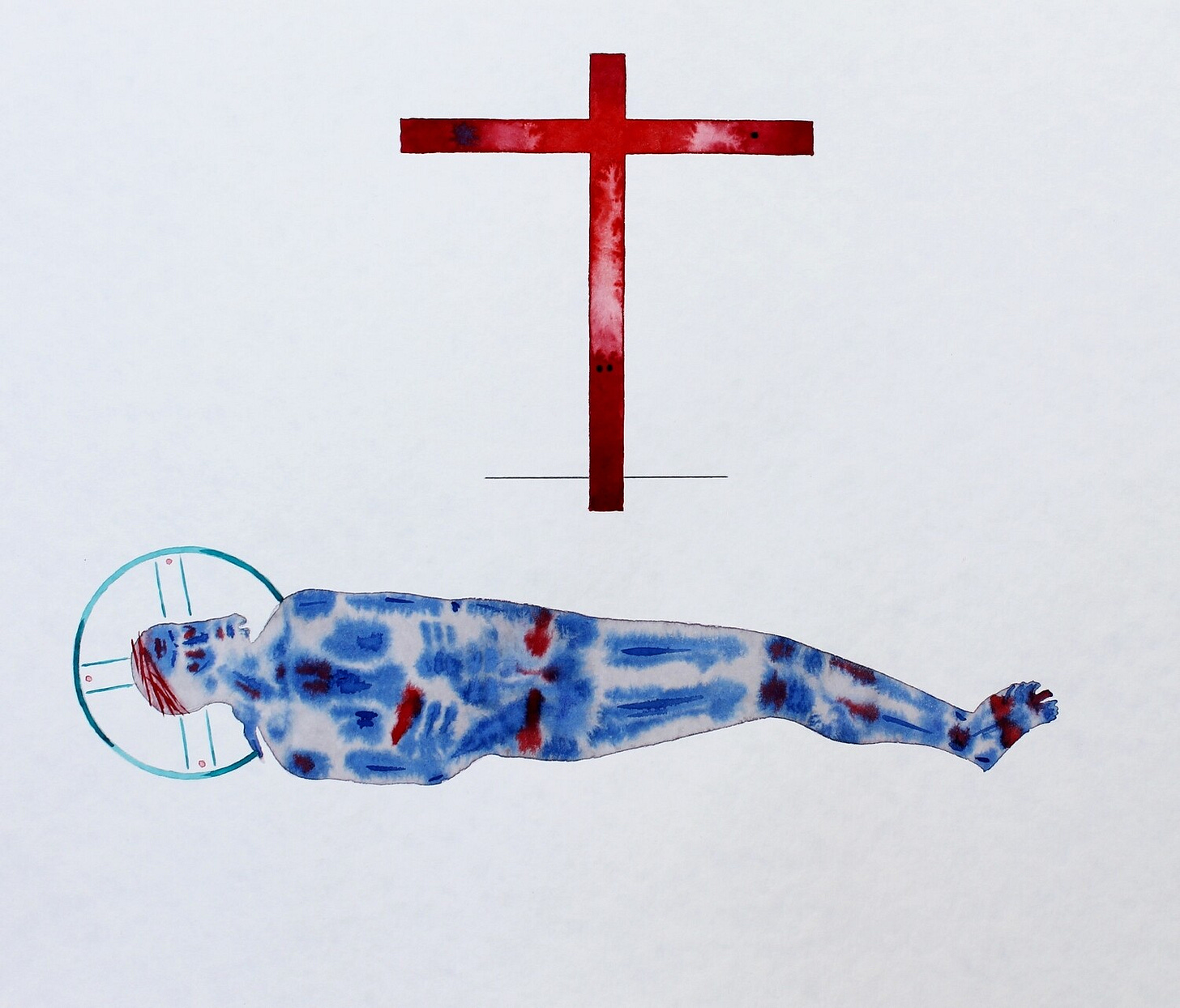“I do not understand my own actions. For I do not do what I want, But I do the very thing I hate... I can will what is right, but I cannot do it... Who will deliver me?”[i]
“It’s me, hi, I’m the problem, it’s me.”[ii]
What a difference a week makes. Last Sunday, my first as your pastor, we looked at the urgency of the grace of God in the Book of Hebrews. God loves you, just as you are right now. And, because God loves you, God is unwilling to leave you just as you are. God’s grace is transforming us, changing us, sanctifying us, from the inside out.
You might have gone home after church to tell a friend or neighbor about the new preacher at Walker Chapel, saying something like, “he’s good-looking, and he takes God’s love seriously. He’s the total package.” On Wednesday night, I met with our Leadership Board, and they asked what was at the forefront of my ministry. “Grace,” I told them.
So, when you heard our scripture reading from Saint Paul’s letter to the Romans, it may have been a bit jarring. Last week, God’s unwavering, unmerited love for you, and today, Sin (with a capital S). If you were asked by the same friend or neighbor you spoke to after last worship last week again today, and they asked about the new preacher on this end of North Glebe Road, you might tell them while God’s Grace is indeed Good News, according to this preacher, Sin is bad.
We are going to spend the remainder of the summer in the Book of Romans exploring the urgency of God’s grace. To put it plainly in case you were not here last Sunday, the Grace of God is a gift. God’s Grace is more than an “I love you just the way you are.” Grace is how God works in us and for us. Retired United Methodist Bishop Will Willimon writes, “God intrudes, draws, comes to you before you know it’s God.” God’s love comes, transforming us from the inside out, doing for us what all our attempts at religiosity and law will never be able to accomplish.
In the book, Preaching Romans, Dr. Scot McKnight writes, “many pastors have become afraid to preach through Romans... they are wading quickly into deep waters.”[iii] We will do our best over the coming weeks to remain unafraid, even if it appears we are in over our heads.
This week, we begin with Sin.
Using himself as an example, Saint Paul is making the point that the state of our flesh is pitiful. We know what we should do, and do not do those things. And, to make matters worse, we know what we should not do, and then we do those very things. We try to think more positively about ourselves, trading “I’m not OK, you’re not OK,” for “I’m OK and you’re OK.” All the while knowing that none of us are OK. And that is not OK. OK?
Color me guilty. A ministry with a focus on God’s grace runs the risk of ignoring our need for grace. And our need for God’s grace stems from what Francis Spufford describes as our human propensity to muck things up.[iv]

Don’t believe me? Look back on human history, and you can clearly see the ways we muck things up. We harm one another on the macro level – war, famine, environmental catastrophe, propping up institutions at the expense of the marginalized, and so on. But there are micro-level ways we harm one another – we ignore the needs of our neighbors, we place our comforts over the needs of others, we silo ourselves away from the community, and so on.
Sin, begets sin, begets sin. Think at the macro level again. The narcissism of the Third Reich led to its anti-Semitic posture, a.k.a. sin, which led to the Holocaust. Which then led to the sins of World War II. Even in our response to sin, we turn toward Sin. Yes, World War II and the Holocaust are low-hanging fruit when it comes to sin. It’s an easy example. But think about this thing about the last time someone sinned against you, what was your response? Was it to forgive 77 times, as prescribed by Jesus or was it with more sin? Sin my friends is what we’re good at.
Our self-serving biases move us to take responsibility for our successes all the while we pass blame to others for the ways we sin against one another and God. Our successes, no matter how big or small, take center stage in our lives and become “little g” gods, while the One who calls us beloved and, in whose image, we were created takes the backseat. We do not mean for this to happen, Paul writes. We know what we should do and what we should not do, but inevitably we do the latter.
Paul rambles for nine verses about the predicament we find ourselves in, while Taylor Swift sums up the condition of our Sin in one sentence: “It’s me, hi, I’m the problem, it’s me.”
Given the free will to choose between God and Sin, to quote our United Methodist communion liturgy, we often “turn away and our love fails.”
This is a hard pill to swallow because none of us wants to admit to the ways we have harmed one another and turned away from God. This is precisely why the word “Sin” is disappearing from the Church’s vocabulary. Or when the word is used, it is used to point out the sins of others. But Sin is more than the ways you and I mess up. Rev. Fleming Rutledge, in her book The Crucifixion: Understanding the Death of Jesus Christ, writes “Sin is not so much a collection of individual misdeeds as it is an active, malevolent agency bent upon despoiling, imprisonment, and death – the utter undoing of God’s purposes. Misdeeds are signs of that agency at work; they are not the thing itself.”[v]
The things we do and leave undone are but a symptom of humanity’s bentness toward forgetting what our holy scriptures remind us of, that we were created in God’s image and yet somehow, we have slipped, slipped to the point of not being able to admit it or recognize how we betray the image in which we were created.
The problem with our Sin, again to quote Taylor, is that “at teatime, everybody agrees” that someone else is the problem. And yet, that is a symptom of our Sin.
The late American theologian, ethicist, and public intellectual Reinhold Niebuhr wrote, “One of the hazards of the Christian life is that the more successful you are (at it), the more you will be subject to various forms of pride and exhibitionism. I give myself in one moment to a cause of the word of our Lord, and then I discover in the next moment, that I haven’t given myself at all, but that the self stands outside of this self-giving and asks, ‘Does anybody notice me in my virtues; will they give me proper credit.’”[vi]
We want our good deeds to stand out from the crowd of Sin we see around us. And everyone agrees that everyone else is the problem.
As a new-to-you pastor, one of the toughest things is actually believing in the Grace I’ve been sent here to preach. Instead, I worry about my performance. What you’ll think of me, how my hair looks, the spot in the sanctuary from where I will preach, if you will notice how many smart people I’ve quoted?
The truth is, like Paul and like all of you I do not fully understand nor control my own actions. I am as bound by Sin as the last lady and the nex t guy. But I am not here to convince you I am good. I am here to declare to you that God is good, even to confounded sinners like you and me.
The key to our salvation, the thing that makes us right before God is not ignoring our Sin – out of sight, out of mind – or ignoring our need for a divine intervention. The key to our salvation is that in spite of our inability to follow God’s top-ten, which Jesus distilled into two things – love God and love one another – God's grace is ours. God’s grace frees us from the necessity of finding our identity in our good deeds. God’s grace frees us from our sins defining who we are. Because in God’s grace we find a new identity: beloved, transformed, sanctified.
In verse 24 Paul asks “who will deliver me” from my Sin?
The short answer? Jesus.
The long answer? Jesus. The One who took the weight of the Sin of the world upon himself, to the point of death. But who then, three days after being placed in a borrowed grave, left his burial clothes behind, neatly folded in the tomb, and walked out.
God’s grace delivers us just as we are, sin and all. Then when we say, “I’m not OK. You’re not OK,” God replies, “And that’s OK.”
Because we are forgiven and free from our Sin, the Church is the Herold of this Good News. Week after week, the urgency of our proclamation replaces judgment and condemnation with Good News. “For God so loved the world,” that we are free. God has done for us that which we cannot do for ourselves, and that is to love you and me just as we are – sin and all.
[i] Romans 7
[ii] Swift, Taylor. Lavender Haze. “Anti-Hero.” 2022.
[iii] McKnight, Scot and Joseph B. Modica. Preaching Romans Four Perspectives. Eerdmans. 2019.
[iv] I edited the phrasing for the purposes on Sunday worship. Spufford’s phrasing is a bit different. To find out what Spufford really wrote I encourage you to read Unapologetic.
[v] Rutledge, Fleming. The Crucifixion: Understanding the Death of Jesus Christ. Eerdmans Press. 2015. Pg. 175.
[vi] Willimon, Will. “Sin.” A Sermon Preached in Duke University Chapel by the Reverend Dr. William H. Willimon July 5, 1987. Access July 7, 2023.




















Share this post